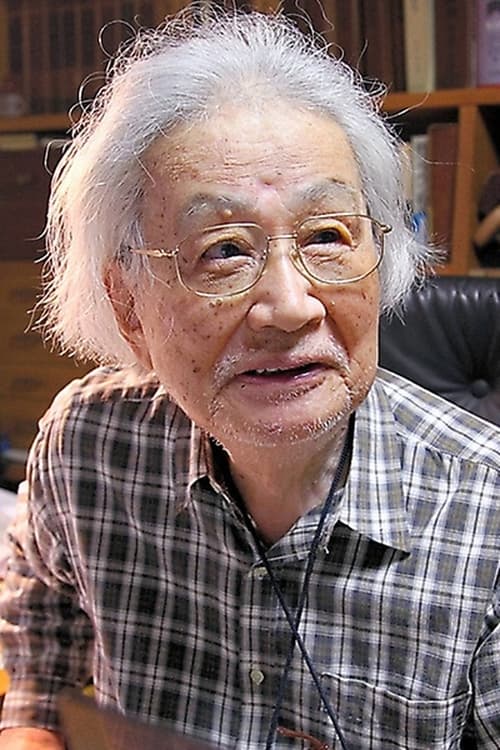
Original Film Writer
Na Londres dos anos 1950, um funcionário público mau humorado decide tirar uma folga do trabalho para experimentar a vida depois de receber um diagnóstico sombrio.
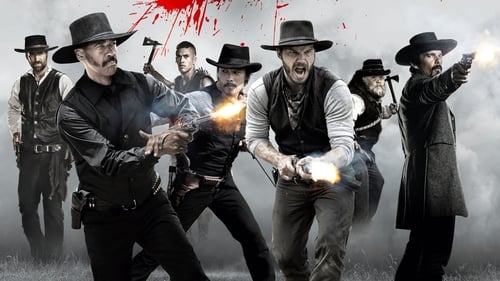
Writer
Os habitantes de um pequeno vilarejo sofrem com os constantes ataques de um bando de pistoleiros. Revoltada com os saques, Emma Cullen deseja justiça e pede auxílio ao pistoleiro Sam Chisolm, que reúne um grupo de especialistas para contra-atacar os bandidos.

Screenplay
In the Edo period of Japan, a samurai’s life belonged to his lord. On the battlefield or in the home, a loyal samurai must always obey his lord’s commands. This is the tragic story of one such loyal samurai, whose love for his family forced him to make the ultimate choice of disobeying the wishes of his lord.

Writer
1944, in the depths of World War II. Toyomatsu Shimizu is a completely typical barber from a remote sea-side town who lives frugally but happily with his wife Fusae and their five-year-old son. Eventually, though, the army beckons and he is drafted. One day an officer on the battle-field orders him to kill a captive U.S. soldier. Although Toyomatsu lacks the spirit to kill the man, and only wounds him in the arm, the victorious U.S. soldiers will not accept this, and Toyomatsu is arrested and tried as a war-criminal. And he receives the cruelest sentence possible...
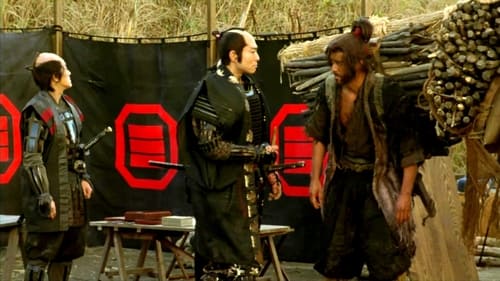
Original Story
Makabe Rokurota, o fiel protetor da Princesa, foi encarregado de transportar com segurança a Princesa Yuki e o tesouro de Akizuki para a estável Hayakawa. Eles se disfarçam de humildes catadores de lenha para atravessar os obstáculos criados por Yamana, e ao longo do caminho contam com a ajuda de Takezo (Jun Matsumoto) e Shimpachi (Daisuke Miyagawa), dois mineradores que escaparam dos trabalhos forçados em uma mina de ouro. Takezo e Shimpachi concordam em ajudar na esperança de escapar da opressão de Yamana e sonhando com a recompensa que Rokurota lhes oferece.
Conseguirá a Princesa chegar ao seu destino e libertar seu povo dos domínios de Yamana?

Screenplay
Remake of Kurosawa Akira‘s Ikiru

Self
Documentary made by Toho for the Masterworks reissue of all of its Kurosawa films. This one focuses on "Dodes'ka-den" (1970).

Self
Documentary made by Toho for the Masterworks reissue of all of its Kurosawa films. This one focuses on "The Bad Sleep Well" (1960).

Self
Documentary made by Toho for the Masterworks reissue of all of its Kurosawa films. This one focuses on "Seven Samurai" (1954).

Interviewee
Documentary made by Toho for the Masterworks reissue of all of its Kurosawa films. This one focuses on "Ikiru" (1952).

Self
In this documentary, script supervisor Teruyo Nogami, who first worked with Akira Kurosawa on RASHOMON, catches up with many members of the crew, including cowriter Shinobu Hashimoto and assistant director Tokuzo Tanaka. They talk about the screenplay’s evolution, difficulties during the shooting of the film, and Kurosawa’s working methods.

Self
Documentary on film maker Akira Kurosawa

Screenplay
Rumiko Arai, a 20-year-old girl working in a sawmill, meets a driver, Sekiguchi, and they begin a relationship with the promise of marriage. But Rumiko's grandmother tells her that they are both cursed by an ancient evil.
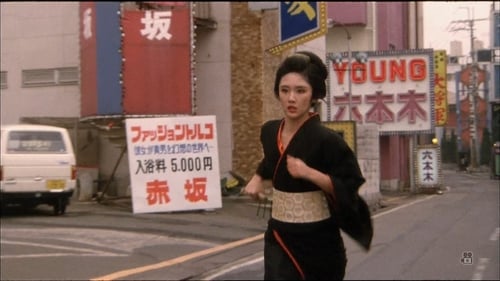
Writer
A woman works as a prostitute and attendant to make a living at a bathhouse. She is athletic and is an avid runner. She has met and adopted a white dog and the two have become inseparable. It is the biggest tragedy and calamity when the dog is found dead, killed, murdered. The woman swears to find justice by finding the murderer and making things right.

Director
A woman works as a prostitute and attendant to make a living at a bathhouse. She is athletic and is an avid runner. She has met and adopted a white dog and the two have become inseparable. It is the biggest tragedy and calamity when the dog is found dead, killed, murdered. The woman swears to find justice by finding the murderer and making things right.
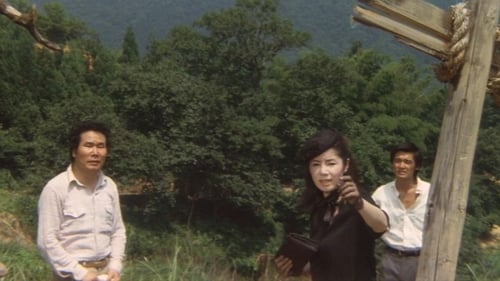
Screenplay
The heir to a family fortune discovers that a curse has been placed on it, put there centuries before by a band of samurai warriors. Adaptation of novel by Seishi Yokomizo
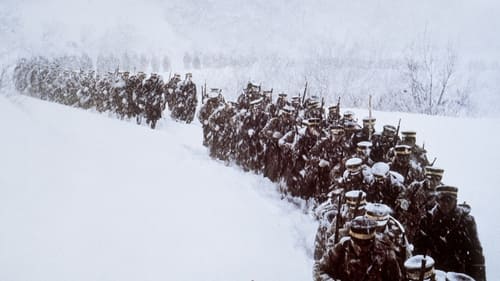
Writer
Two infantry regiments of the Imperial Japanese Army—210 men overall—tackled Mt. Hakkoda in the winter of 1902 to prepare for war with Russia.

Screenplay
Dramatic story of one man trying to make a difference.
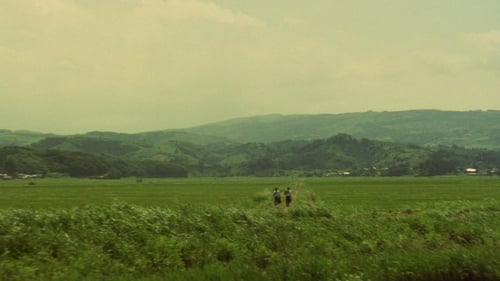
Producer
Two detectives are tasked to investigate the murderer of an old man, found bludgeoned to death in a rail yard.

Writer
Two detectives are tasked to investigate the murderer of an old man, found bludgeoned to death in a rail yard.
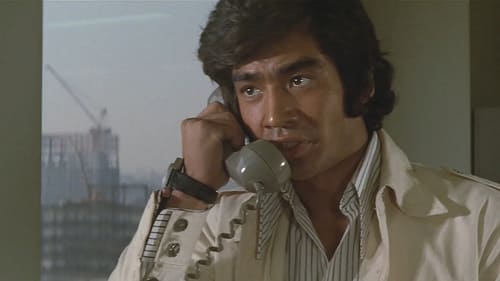
Screenplay
A team of geophysicists investigating seismic activity on the seafloor discover that the islands of Japan, after suffering from massive volcanic eruptions and earthquakes, will be pulled into the ocean, killing millions.
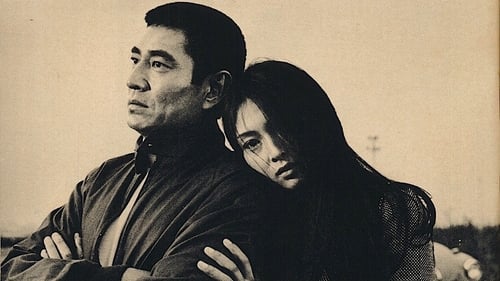
Screenplay

Writer

Writer
A Japanese cop is sent to join the London police force on a secret investigation.

Screenplay
Richness, severity and pureness of love is beautifully and sentimentally depicted.
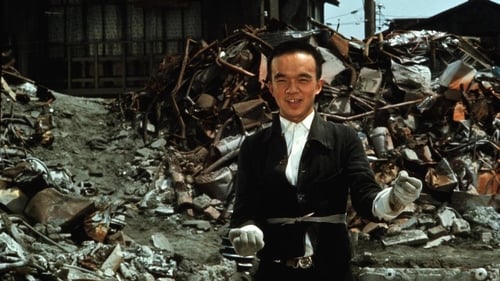
Screenplay
Vários contos na vida de habitantes de favelas de Tóquio, incluindo um jovem mentalmente deficiente obcecado com a condução de seu próprio bonde. Ao mesmo tempo trágico e transcendente, esse filme de Akira Kurosawa acompanha o cotidiano de um grupo de pessoas maltrapilhas em uma favela nos arredores de Tóquio. Por mais desesperadoras que sejam suas circunstâncias, cada um deles - O pai e o filho sem teto imaginando a casa de seus sonhos; A jovem abusada pelo tio; O garoto que se imagina um condutor de bonde - encontra razões para continuar. O inesquecível Dodes'ka-den foi feito num momento tumultuado na vida de Kurosawa. E todas as suas esperanças, medos e paixão artística estão em exibição fervorosa neste filme, seu primeiro filme gloriosamente a cores. (e 12 - Estimado 12 Anos)
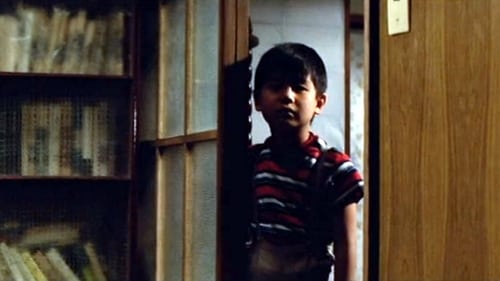
Screenplay
When a married man begins an affair with a woman from his past, he comes to suspect her young son intends to murder him.
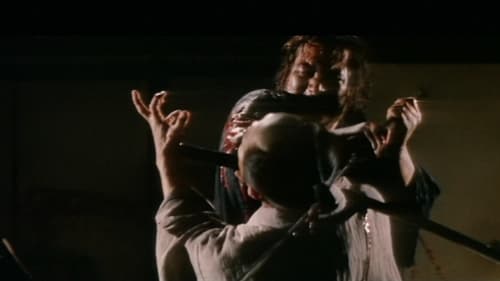
Screenplay
A ronin desperately seeks a way out of financial straits; he allies with the Tosa clan under the ruthless leader Takechi, who quickly takes advantage.
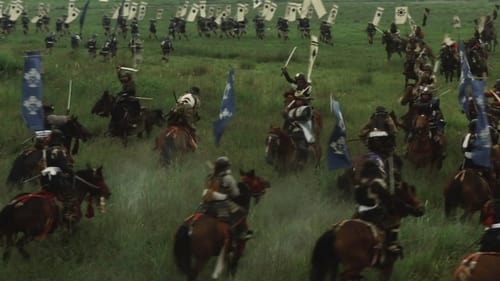
Screenplay
Kansuke Yamamoto is a samurai who dreams of a country united, peaceful from sea to sea. He enters the service of Takeda, the lord of Kai domain. He convinces Takeda to kill the lord of neighboring Suwa and take his wife as a concubine. He then convinces the widow, Princess Yu, to accept this arrangement and to bear Takeda a son. He pledges them his life. He then spends years using treachery, poetic sensibility, military and political strategy to expand Takeda's realm, advance the claim of Yu's son as the heir, and prepare for an ultimate battle with the forces of Echigo. Has Kansuke overreached? Are his dreams, blinded by love, too big?
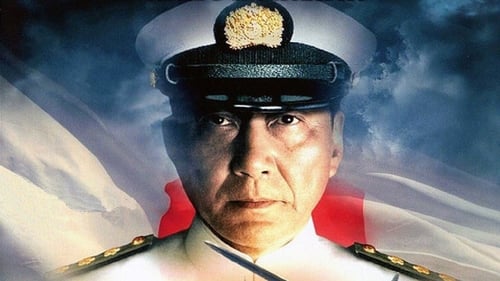
Screenplay
As Japan joins in a political pact with Nazi Germany and fascist Italy, Admiral Isoroku Yamamoto is appointed supreme commander of the Japanese fleet. With Japan headed inexorably toward war, Yamamoto, despite his misgivings, believes the only possible victory lies in destroying the American fleet by surprise at Pearl Harbor. The attack succeeds, but fails to sink the American carrier fleet. Thus Yamamoto must lead the Japanese navy into war with ever-diminishing likelihood of success.

Screenplay
It is based on the story "The Lawyer" by attorney Hiroshi Masaki and his account of Japan's "Headless Murder Case" in which a police officer beat a suspect to death during the Pacific War.
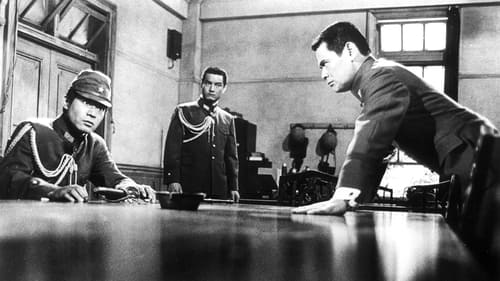
Screenplay
Following the detonation of the atomic bombs on Hiroshima and Nagasaki, the Japanese military and the government clash over the demand from the Allies for unconditional surrender. Minister of the Army Anami leads the military officers who propose to fight on, even to the death of every Japanese citizen. Emperor Hirohito, however, joins with his ministers in asking the unthinkable, the peaceful surrender of Japan. When the military plots a coup to overthrow the Emperor's civilian government, Anami must face the choice between his desires and loyalty to his Emperor.
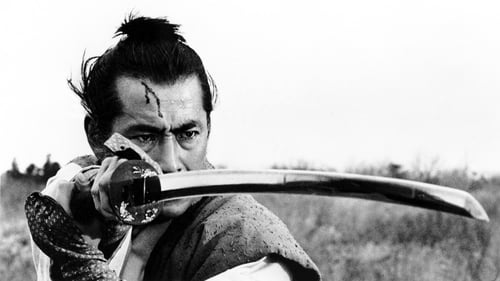
Screenplay
A mãe do único herdeiro de um senhor feudal é raptada para longe do marido pelo lorde. O marido e o seu pai samurai devem decidir se acatam a decisão injusta ou arriscam a morte para recuperá-la.
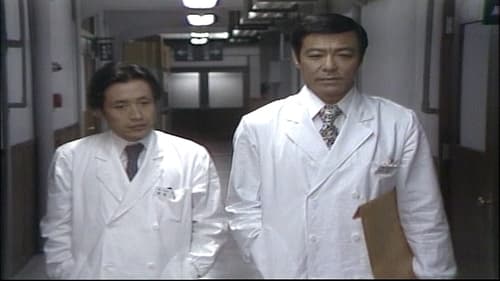
Screenplay
The story contrasts the life of two doctors, former classmates and now both assistant professors at Naniwa University Hospital in Osaka. The brilliant and ambitious surgeon Goro Zaizen stops at nothing to rise to a position of eminence and authority, while the friendly Shuji Satomi busies himself with his patients and research.
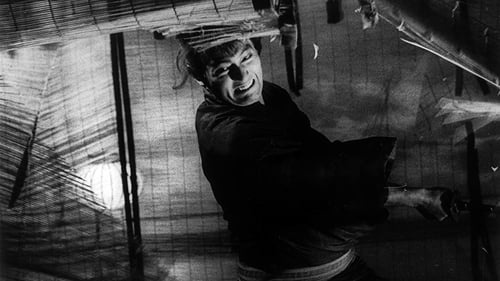
Screenplay
Sem compaixão e em busca de sua glória pessoal, um samurai vaga pelas aldeias espalhando morte, sangue e desprezo, até que é desafiado por um guerreiro tão hábil quanto ele.
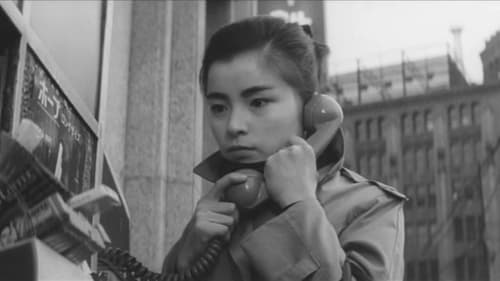
Screenplay
When her only relative, her elder brother is accused of robbing and murdering an old woman loan-shark, pretty, young Kiriko travels from her home in Kyushu to Tokyo to get Japan's top lawyer to defend her brother. Unfortunately her naive idealism is shattered when the lawyer refuses to take the case based on her insufficient funds. What follows is a long determined revenge plot that sees the heroine become a Tokyo bar hostess and worse to punish the lawyer. The plot thickens with another murder mystery and a sleuthing reporter.
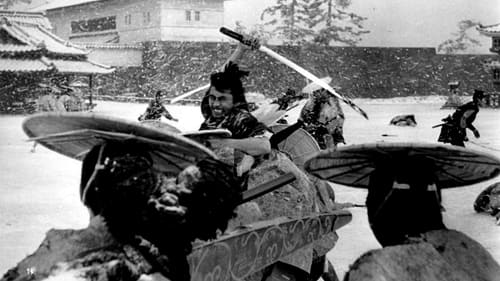
Screenplay
Japan, 1860. The men of the Mito clan, victims of the Ansei purge, anxiously prowl around the Sakurada Gate of Edo Castle with the intention of assassinating Naosuke Ii of Hikone, tairō of the Tokugawa shogunate and responsible for their misfortune.

Writer
This tragic drama shows a young man fettered by Bushido, the way of the Samurai, who tried to escape the chains of his position, but was being forced to die. When the Tokugawa Shogunate ruled the land, Tatsuno castle in Wakisaka Clan's home of Harima held an established custom, the inspection of the arms warehouse. The Government Inspector Okuno Magodayu found a slight bit of dirt on the point of a spear and mentioned it with disdain. Ezaki Shinpachi heard it and started an argument with him. Magodayu then sent a a letter of challenge to him because he felt insulted by a low-ranking underling without a title. As it turned out Magodayu was killed. Since then, Shinpachi and the Okuno family have had continuous revenge duels. The tension mounts as this story builds to an extremely violent climax, when blood must pay for blood if the clan is to survive!
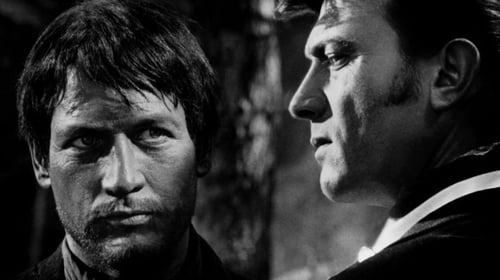
Original Story
Um trapaceiro (Edward G. Robinson), um padre (William Shatner) e um mineirador (Howard da Silva) esperam, em uma estação em ruínas, a chegada do trem. Enquanto não chega, o trapaceiro ouve os outros dois conversarem sobre um recente julgamento, no qual um conhecido bandoleiro, Juan Carrasco (Paul Newman), foi julgado por assassinato. Seria apenas outro julgamento no qual o réu confessou, mas outros três depoimentos negavam a culpa de Juan. Cada confissão, inclusive da vítima, que fala através de um indígena com poderes mediúnicos, narra uma "verdade" e cada uma delas é mostrada em flashback.

Novel
A Japanese detective, Kikuchi, is framed for a murder and sent to prison. When he is paroled, he joins a private detective agency to investigate his case and investigates Mitsue Takazawa, the wife of a local trading firm whom is really a crime lord responsible for Kikuchi's imprisonment and now sets sights on Setsuko, a woman Kikuchi becomes romantically involved with.

Screenplay
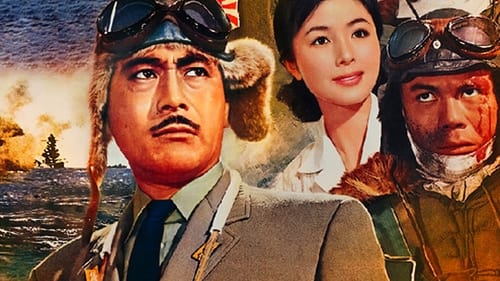
Writer
Lt. Col. Senda resists the idea of sending Japanese fighter pilots on suicide missions. He believes that what is really necessary for Japan to regain momentum in the war is for the air force to gather its most brilliant pilots into an elite squadron and use the unit to pinpoint attacks on the Americans. Disrespected by the kamikaze pilots who think the "non-suicidal" pilots are afraid, the unit redeems itself by stunning victories. But success leads the military leaders to expect too much of the unit, and new orders portend disaster.
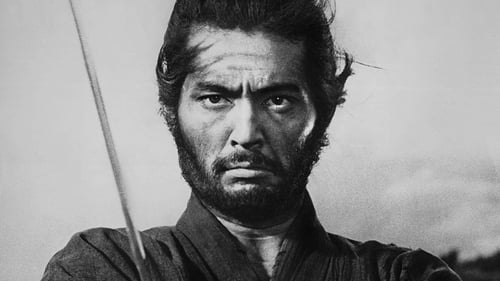
Screenplay
Em um tempo de paz os samurais não eram necessários e estavam vivendo em completa miséria sem alguma casa para servir. Alguns pediam para realizar o harakiri dentro das residências de nobres apenas para extorquí-los; com pena, os senhores davam algum dinheiro ao guerreiro e o mandavam embora. Um nobre recebe um jovem samurai com este propósito e decide obrigá-lo a tirar a própria vida.

Screenplay
A story of an orphan boy who wanted the love of parents so badly, another orphan sincerely pitied him to the point he gives his secret birthright as an illegitimate son to a Shogun as a "gift of hope" to the sad boy. As the orphan boy grew up, his loving heart became bitter and he saw the opportunity to take advantage of this birthright with the help of a man who wanted to use this orphan's desire to be loved, for seizing power in the shogunate by using the imposter. Many obstacles to hurdle along the way of deception, however, will they succeed or will he be exposed?

Adaptation
Features a haunted well with yet another blind masseur's vengeful ghost.
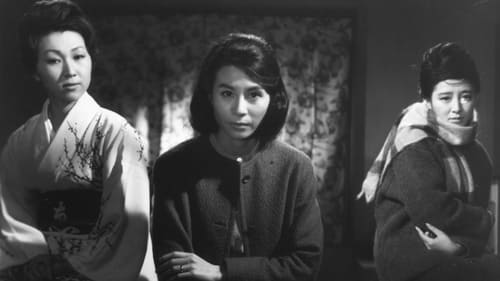
Screenplay
One week into newlywed Teiko Uhara's marriage, her husband, Kenichi, leaves on a short business trip and never returns. Teiko travels across Japan to search for him, and along the way discovers some surprising facts about her husband's past. With only a pair of old photographs among his belongings to go off of, Teiko tries to figure out what has happened to him.

Writer
Um jovem vingativo se casa com a filha de um industrial corrupto, a fim de buscar justiça pelo suicídio de seu pai. Uma história de Kurosawa sobre o escândalo corporativo no Japão do pós-guerra. Um jovem tenta usar sua posição no coração de uma empresa corrupta para expor os homens responsáveis pela morte de seu pai. (e 14 - Estimado 14 Anos)

Screenplay
A young doctor falls into a despair of developments. He plans to revenge the disgrace inflicted upon his sister, whose engagement was broken as a result.

Writer
Lt. Koji Kitami is a navigator-bombardier in Japan's Naval Air Force. He participates in the Japanese raid on the U.S. Naval Base at Pearl Harbor in 1941 and is welcomed with pride in his hometown on his return. As Japan racks up victory after victory in the Pacific War, Kitami is caught up in the emotion of the time and fights courageously for the standard of Japanese honor. But his assuredness of his government's righteousness is shaken after the Japanese navy is defeated in the debacle of Midway.

Screenplay
Suspense drama about a married salaryman whose affair with one of his co-workers is compromised when, returning from a clandestine meeting with his lover, he runs into a neighbor who is later accused of murder. Questioned by police about the neighbor, and blackmailed by his lover's neighbor, the salaryman's lies lead him on a path to destruction.

Screenplay
A year ago, Tetsuo Yazaki was unemployed and wanted money, attacked a police box in Kobe, robbed a policeman of his pistol, attacked Hamamatsu OS Theater and Nagoya Shinwa Bank, and succeeded in robbing a large amount of money.
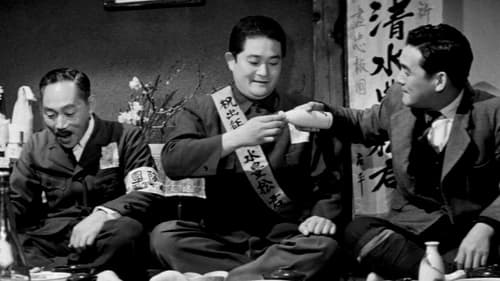
Writer
On a post-war peaceful day in Japan, Toyomatsu Shimizu, a barber as well as a good father and husband, is suddenly arrested by the Prefectural Police as a war criminal and sued for murder.

Director
On a post-war peaceful day in Japan, Toyomatsu Shimizu, a barber as well as a good father and husband, is suddenly arrested by the Prefectural Police as a war criminal and sued for murder.
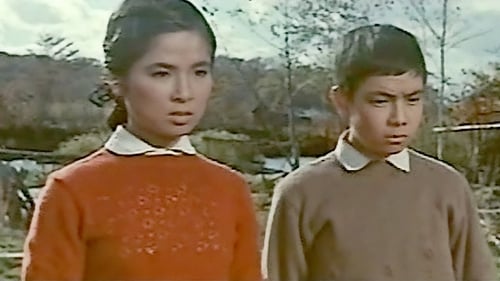
Screenplay
The story is about the social problems faced by Japan's indigenous Ainu, mostly centered on the reactions of the characters to their oppressed state.
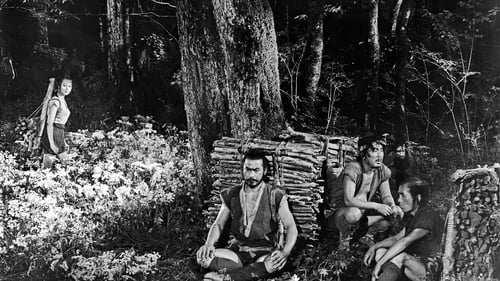
Writer
Ambientado no século dezesseis no Japão, um solitário samurai escolta uma jovem princesa fugitiva através do território inimigo.
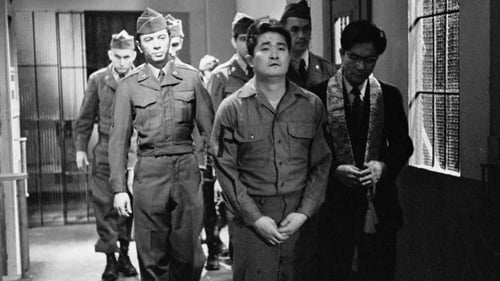
Story
Television production of I Want to Be a Shellfish. On a post-war peaceful day in Japan, Toyomatsu Shimizu, a barber as well as a good father and husband, is suddenly arrested by the Prefectural Police as a war criminal and sued for murder. According to the accusation by GHQ, Toyomatsu "attemped to kill a US prisoner", which was nothing but an order by his superior and failed after all with hurting the prisoner by weak Toyomatsu. Also, Toyomatsu was driven to corner at the trial by the fact that he fed the US prisoner some burdock roots to nourish him. Toyomatsu believes nothing but being not guilty, but he is sentenced to death by hanging. Prior to the execution, Toyomatsu writes a long farewell letter to his family, the wife and the only son: "If I ever incarnate, I hate to be a human being any more.... Oh yes, I would like to be...a shellfish living on the rock-bottom of the sea."
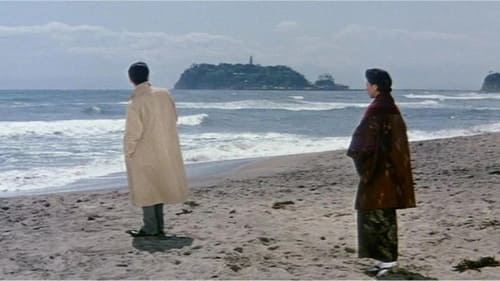
Screenplay
A war widow with a young boy manages a farm with her bossy mother-in-law. When a reporter comes to interview her, the two begin an affair. He turns out to be married and won't leave his wife. Her older brother tries to marry off his children and hang on to/ extend his farm through an advantageous marriage in the face of threatened land confiscation and the desire of his children to get comfortable urban jobs instead of the backbreaking work in the paddy fields under parental control.

Screenplay
Following a yearlong attendance upon his shogun in Edo, samurai Hikokuro makes a long-awaited return to his home and doting wife, Dane. Initially greeted by the effusive welcome of his family, spiteful whispers also reach his ear about an adulterous affair carried on, in his long absence, between his wife and a famous drummer. With Hikokuro’s honor imperiled by rumor, his family insists on a formal investigation into the veracity of the gossip. Through the combined testimony of many witnesses, a tale unwinds around the visits of a traveling musician hired to tutor the family heir, the spurned attentions of the man who started the rumor, and the ultimate truth behind the accusations. The conclusion of events prove as much an indictment of bushidō as it is of the reluctant parties involved. Adapted from a 1706 play by Chikamatsu Monzaemon and based on a true case.
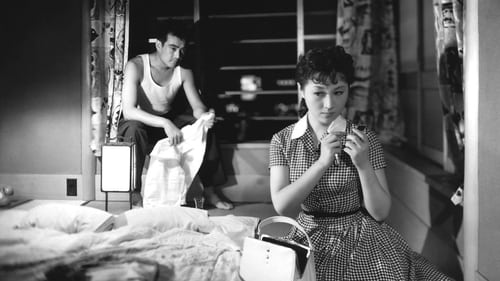
Writer
Two detectives begin a stakeout based on the slim chance of catching a murderer whom they suspect will try to reunite with an old flame.
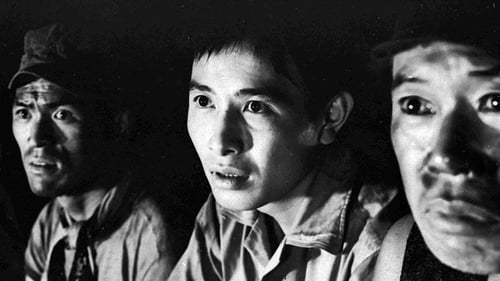
Screenplay
Based on a 1956 television feature on Japan’s national network, NHK, this is one of Uchida’s rarest films. A socially conscious drama with a contemporary backdrop, Dotanba focuses on the attempts to rescue a group of trapped miners. The title is a figure of speech — (essentially “last minute” or “eleventh hour”) — that refers to a situation of peril. The film boasts a script co-written by Uchida and Akira Kurosawa’s frequent screenwriter, Shinobu Hashimoto, and stars Kurosawa’s frequent star Takashi Shimura.
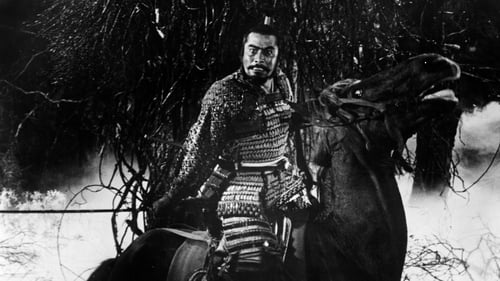
Screenplay
Japão, século XVI. As guerras civis sacodem o país. Dois valentes samurais, os generais Washizu Taketori (Toshirō Mifune) e Miki (Minoru Chiaki), regressam aos seus domínios depois de uma batalha vitoriosa. No caminho, uma misteriosa senhora profetizao futuro de Washizu: o guerreiro se converterá no Senhor do Castelo do Norte. A partir deste fato Washizu, auxiliado por sua esposa Asaji Isuzu Yamada, se vê imerso numa trágica e sangrenta luta pelo poder.
Trono Manchado de Sangue (蜘蛛巣城, Kumonosu-jō?, literalmente "Castelo Teia de Aranha") é um filme japonês de 1957 dirigido por Akira Kurosawa, que transpôs a obra Macbeth de William Shakespeare para o Período Sengoku japonês (séc. XV - XVI).
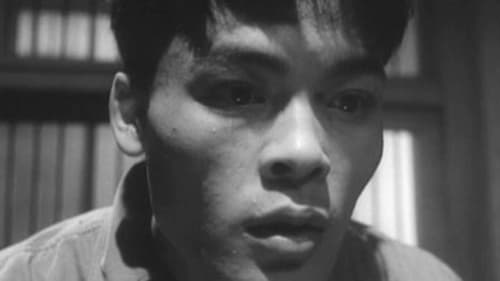
Screenplay
Police beat a murder confession out of four innocent men who are then sentenced to death. Based on a true story.

Screenplay
Horror film directed by Toshikazu Kôno.
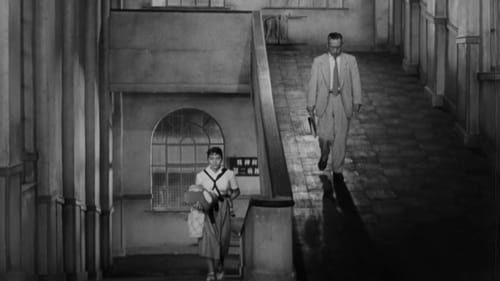
Writer
Kiichi Nakajima, um idoso proprietário de fundição, convencido de que o Japão será afetado por uma guerra nuclear iminente, resolve transferir sua família para a segurança no Brasil. Sua família decide que seja declarado incompetente e o Dr. Harada, um conselheiro do Tribunal Doméstico, tenta arbitrar. (e 12 - Estimado 12 Anos)

Screenplay
Yasuichiro Isa, who works in the labor section of Sone Mining Tokyo Headquarters, paid a monthly fee for his younger brother, Reiji, who was in trouble because he had a bonus of 10,000 yen more.

Screenplay
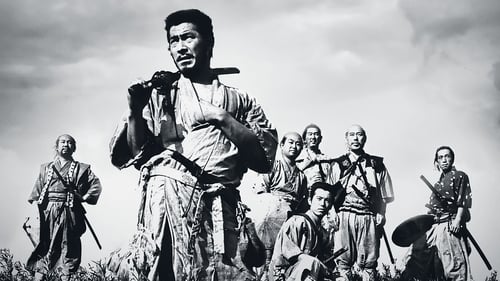
Screenplay
No século XVI, durante a era Sengoku, quando os poderosos samurais de outrora estavam com os dias contados, pois eram agora desprezados pelos seus aristocráticos senhores. Kambei (Takashi Shimura), um guerreiro veterano sem dinheiro, chega em uma aldeia indefesa que foi saqueada repetidamente por ladrões assassinos. Os moradores do vilarejo pedem sua ajuda, fazendo com que Kambei recrute seis outros ronins (samurais sem mestre), que concordam em ensinar os habitantes como devem se defender em troca de comida. Os aldeões dão boas-vindas aos guerreiros e algumas relações começam. Katsushiro (Ko Kimura) se apaixona por uma das mulheres locais, embora os outros ronins mantenham distância dos camponeses. O último dos guerreiros que chega é Kikuchio (Toshiro Mifune), que finge estar qualificado mas na realidade é o filho de um camponês que almeja aceitação.

Writer
The Glorious Days

Screenplay
Dai-ni-bu: Aijô ruten: Kiyoshi Saeki directed movie

Screenplay
Dai-ichi-bu: Dôkai-wan no rantô - Kiyoshi Saeki directed movie.

Writer
This is a film about a Naval Air Corps Director who hates the war. Director Honda uses this film to ask the question "What is war?", showing the human bonds between Japan and America, Japanese military tactics which had little regard for life, and the attitude of Japanese military personnel who treated their actions as if they were just doing a job. This film contains few battle scenes, concentrating instead on the love stories of young officers and female members of the community in this lonely air base.
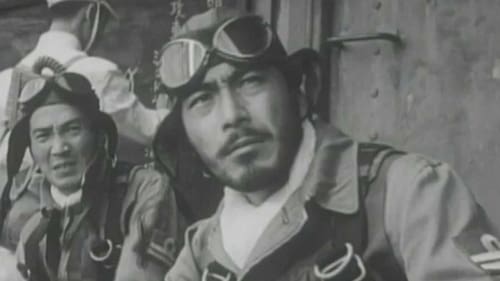
Screenplay
Admiral Isoroku Yamamoto, a brilliant tactician, is a loyal subject of the emperor, despite his grave misgivings about leading Japan's navy into war with the United States. He opposes the attack on Pearl Harbor, but, overruled, he leads his forces to the best of his ability.
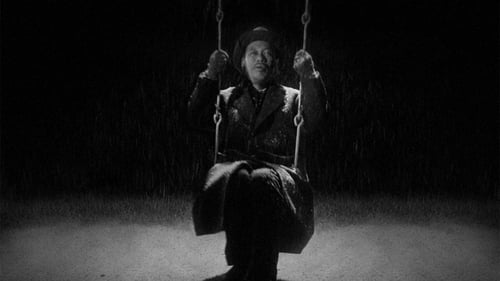
Screenplay
Burocrata de longa data, que não liga para nada que não o interessa, descobre que está com câncer. Decide, então, construir um playground em seu bairro, tentando descobrir um sentido para sua vida.

Writer
After mastering swordsmanship at the dojo of Chiba Shusaku, and unable to serve a clan due to his illness, Hirate Miki becomes a ronin who winds up as bodyguard to Shigezo of Sasagawa leading up to an epic battle.
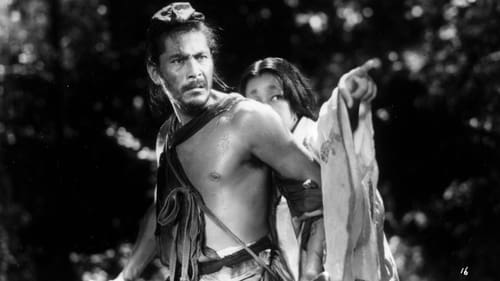
Screenplay
No Japão do século XI, um lenhador, um sacerdote e um camponês procuram refúgio de uma tempestade nas ruínas de pedra do Portão de Rashomon. O sacerdote conta detalhes de um julgamento que testemunhou, envolvendo o estupro de Masako e o assassinato do marido dela, Takehiro, um samurai. Em flashback é mostrado o julgamento do bandido Tajomaru, onde acontecem quatro testemunhos, inclusive de Takehiro através de um médium. Cada um é uma "verdade", que entra em conflito com as outras.
